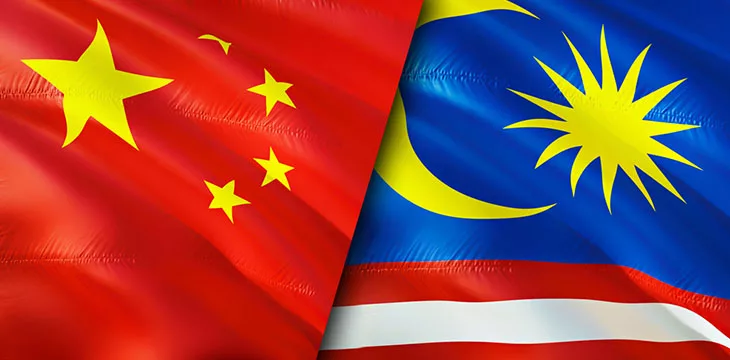|
Getting your Trinity Audio player ready...
|
Malaysia and China have inked a deal to see both nations explore the possibilities of improving the cross-border application of blockchain technology using artificial intelligence (AI).
The project is a collaboration between China’s Academy of Information and Communications Technology (CAICT) and Malaysia’s Universiti Malaya (UM), according to a report by Times of Startups. Details indicate that blockchain infrastructure for the study will be provided by layer-1 distributed ledger platform Zetrix, selected for its privacy and security features.
Both parties are keen on leveraging the intersection of AI and blockchain to revolutionize cross-border trade in Southeast Asia. Touted as the major drivers of the fourth industrial revolution, AI and DLT have recorded impressive adoption metrics over the last five years, but experts have noted a lack of research merging both technologies.
“The incorporation of AI into our ongoing research work opens up a whole new realm of possibilities,” UM lead researcher Dr. Saaidal Razalli Azzuhri said. “We expect that the synergistic combination of AI and blockchain technology will lead to breakthroughs that greatly enhance the efficiency and security of cross-border trade.”
International remittances in Southeast Asia have been plagued by several challenges, including delays spanning 48 hours for settlements and sky-high charges. A majority of Southeast Asian countries have begun exploring the use of central bank digital currency currencies (CBDCs) to circumnavigate the challenges.
Several international agencies have picked up the gauntlet in a valiant attempt at streamlining cross-border transactions among Southeast Asian countries. A keen example is the wrapping up of the Asian Development Bank’s proof-of-concept for a regional cross-border bond settlement scheme.
The latest research arrangement between China and Malaysia is part of China’s government-to-government (G2G) initiative spearheaded by the Ministry of Science and Technology (MOST).
Relying on AI amid rising concerns
Despite the growing concerns surrounding their usage, several countries have begun relying on AI to improve government processes. In the European Union (EU), Romania launched an AI bot to advise the government on policy, while the Philippines unveiled a strategy to rely on AI to crack down on human traffickers.
For all the myriad uses, critics remain skeptical over the copyright, privacy, and bias concerns associated with widespread AI use. Several jurisdictions, including the EU, are pushing out regulations to guide the safe use and development of AI, specifically focusing on the clear labeling of AI-generated content.
Watch Combat IQ: Harnessing the powers of AI and blockchain

 03-01-2026
03-01-2026 




